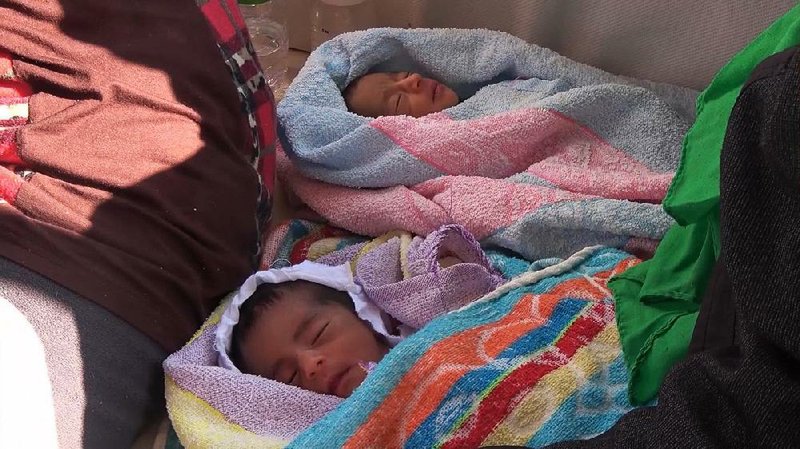Migrant deaths in the Mediterranean Sea this year are poised to eclipse all of 2015, even as fewer people hazard the journey.
The United Nations refugee agency recorded 3,167 migrants dead or missing at sea in the first seven months of 2016 compared with 3,771 in all of last year, according to figures updated Wednesday. While the number of crossings has dropped by two-thirds, those attempting the perilous voyage are facing greater dangers.
"This year has been particularly deadly; smugglers are taking even bigger risks than in the past and basically sending people to their deaths," refugee agency spokesman William Spindler said in an interview. "It's a combination of the declining quality of the vessels they're using -- putting people onto anything that floats -- and cramming more people onto boats."
Images of refugees crossing the Mediterranean are feeding a global debate over immigration that is dividing electorates across the western world. The Syrian war and Islamic terrorism, plus the drive to escape poverty in Africa, mean Europe is in the throes of the biggest influx of refugees since World War II, stoking populist sentiment from the U.K. to France and Germany.
At its peak last summer, the influx of migrants from the Middle East and North Africa destabilized European Union governments and threatened to break the bloc's passport-free travel zone as national authorities closed borders and refused to accept refugees. Following an agreement in March between the EU and Turkey to stem refugee flows through Greece, numbers have dropped and attention has shifted to the more dangerous central Mediterranean route to Italy.
Although the number of arrivals to the EU has fallen, the crisis could yet become a lightning rod in elections in France and Germany next year. Efforts to stop people making the journey from Northern Africa to Italy are complicated by a fragile national-unity government in Libya as well as a region destabilized by civil war and conflicts with the Islamic State.
As waves of migrants lined up to cross to Europe, people smugglers changed the way they operate, now taking more risks by sending people on rubber dinghies rather than small fishing boats, transferring people to larger boats in the middle of the sea to avoid detection and sometimes putting people on vessels with insufficient fuel, Spindler said.
The influx of migrants to Greece has decreased dramatically since March's EU-Turkey deal and the closure of the border between Greece and Macedonia. Last month 3,437 migrants arrived in Greece compared with 107,843 last August. In Italy, 11,854 people arrived last month, compared with 22,609 in the year-ago period. Nearly 3,000 entered on Tuesday alone, the most in a single day since June 28.
"We have seen increased figures in recent days but this is still significantly lower than the same period last year," European Commission spokesman Natasha Bertaud told reporters in Brussels on Wednesday. "It's quite common for arrival figures to change on a daily basis and it's quite difficult to decipher trends until a little bit after the fact. But at the moment we're still in a situation that it's a lot less than last year."
European Union governments this week gave a naval operation aimed at disrupting refugee smuggling in the central Mediterranean Sea the go-ahead to take on two new tasks. One is to train the Libyan coast guard and navy so they can confront traffickers and save migrant lives; the second is to help uphold a United Nations arms embargo on Libya.
Most migrant deaths on the Libya-Italy migrant route occur in Libyan territorial waters, which are out of reach of the EU operation unless, or until, it gets an invitation from the Libya government and backing from the United Nations.
Since its inception in June 2015, the initiative has arrested 87 smugglers, seized 288 boats and helped save around 25,000 lives, according to the EU.
German Chancellor Angela Merkel, in an interview with the Munich-based newspaper Sueddeutsche Zeitung published late Tuesday, defended her decision to admit more than 1 million refugees last year even as neighboring countries threw up barriers and razor-wire fences. Germany had "ignored the problem for too long," she said.
There is no indication that the mostly Syrians, Afghans and Iraqis who were using the Greece route have shifted to the central Mediterranean route to Italy, according to the U.N. refugee agency. Migrants making this crossing originate mainly from Nigeria, Eritrea and other western African countries such as Gambia and Guinea.
"What we're saying to European countries is that there is no room for complacency, this problem has not gone away simply because fewer people are arriving in Greece," Spindler said.
Information for this article was contributed by Alan Crawford and Richard Bravo of Bloomberg News.
A Section on 09/02/2016


